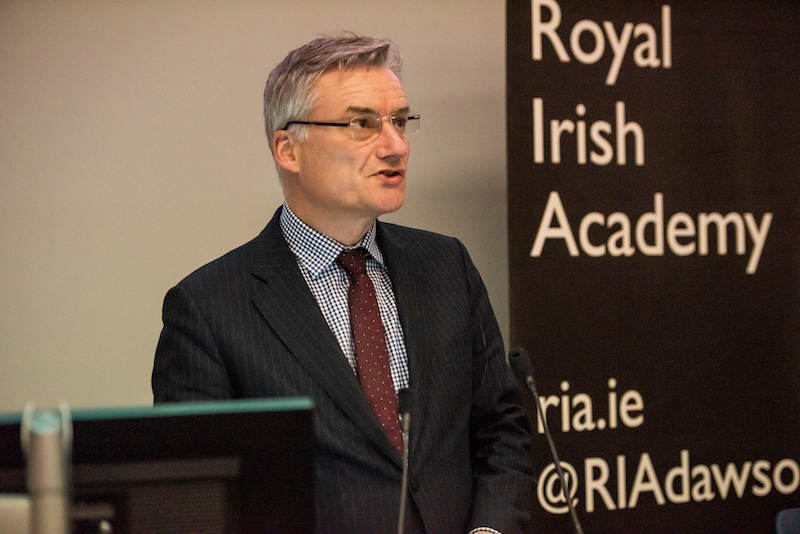Trinity has launched the Prendergast Challenge-Based Project Awards, which will enable research teams to recruit PhD students to work on projects which address global challenges.
The awards were created in honour of outgoing Provost Patrick Prendergast, whose 10-year term concludes next week.
The awards are funded through philanthropic support of the Provost’s Council – a network of leading Trinity alumni and supporters who act as advisors to the College.
Donations in Prendergast’s honour will fund two awards, each to the value of €600,000.
Each award will enable a team of academics from different research areas to recruit up to five PhD students to work on “an impactful project addressing a global challenge”.
A Trinity press statement said: “The awards recognise that global challenges are complex and driven by multiple and often overlapping phenomena that are best addressed by exploiting the collaborative expertise of multiple disciplines.”
The initiative aims to foster cross-disciplinary research inspired by six cluster areas in the EU Horizon Europe’s Global Challenges and Industrial Competitiveness pillar, including health and civil security for society.
In a press statement, College’s Dean of Graduate Studies Martine Smith said: “I wish our academic applicants fruitful conversations in the coming weeks and look forward to receiving exciting proposals guaranteed to make the assessment process challenging. Our sincere thanks to the Provost’s Council for their generous recognition of the leadership of Provost Patrick Prendergast.”
Trinity academic staff from Assistant to Professor grades will be eligible to apply, and each team must show balance across career stage, disciplinary background and gender.
The deadline for expression of interest is September 24th.
Prendergast is due to finish his term as provost on August 1st, when Provost-Elect Linda Doyle will replace him. Earlier this month, a retrospective review of his provostship was published, which showed that Trinity’s income from donations and endowments has more than doubled in the past five years.
Donations and endowments increased by 115 per cent from 2015 to last year. College took in €27.8 million in donations and endowments last year.
Income from academic fees increased from €113.8 million in 2012 to €163.7 million in 2020.
Prendergast’s tenure was defined in part by the issue of state funding to universities. The proportion of College’s income coming from the exchequer decreased significantly from before he took up office, from 70 per cent of the university’s total income in 2008 to 39 per cent in 2020.
He oversaw the development of several major capital projects, including a state-of-the-art new building for Trinity Business School and a six-story building for College’s Engineering, Environment and Emerging Technologies (E3) learning foundry.
E3 will be located on the east end of campus, between Westland Row and College Park, and will allow for the creation of 1,800 additional places for STEM students, an increase of one third in the next decade.
Prendergast also spearheaded a major increase in philanthropic donations to Trinity. He told The University Times earlier this month that College’s Inspiring Generations campaign has now exceeded its target of €400 million in donations.
In an interview with The University Times, the Provost said that a €30 million donation to the Trinity East project from Eric and Barbara Kinsella earlier this year brought the total amount of money brought in to more than €400 million.
The donation will go towards the E3 Research Institute in Trinity East, helping to launch the development of a new campus in the Docklands.
In 2018, the E3 Institute received the-then largest-ever private donation in the history of Ireland, with a €25 million gift from long-time College donor Martin Naughton.







